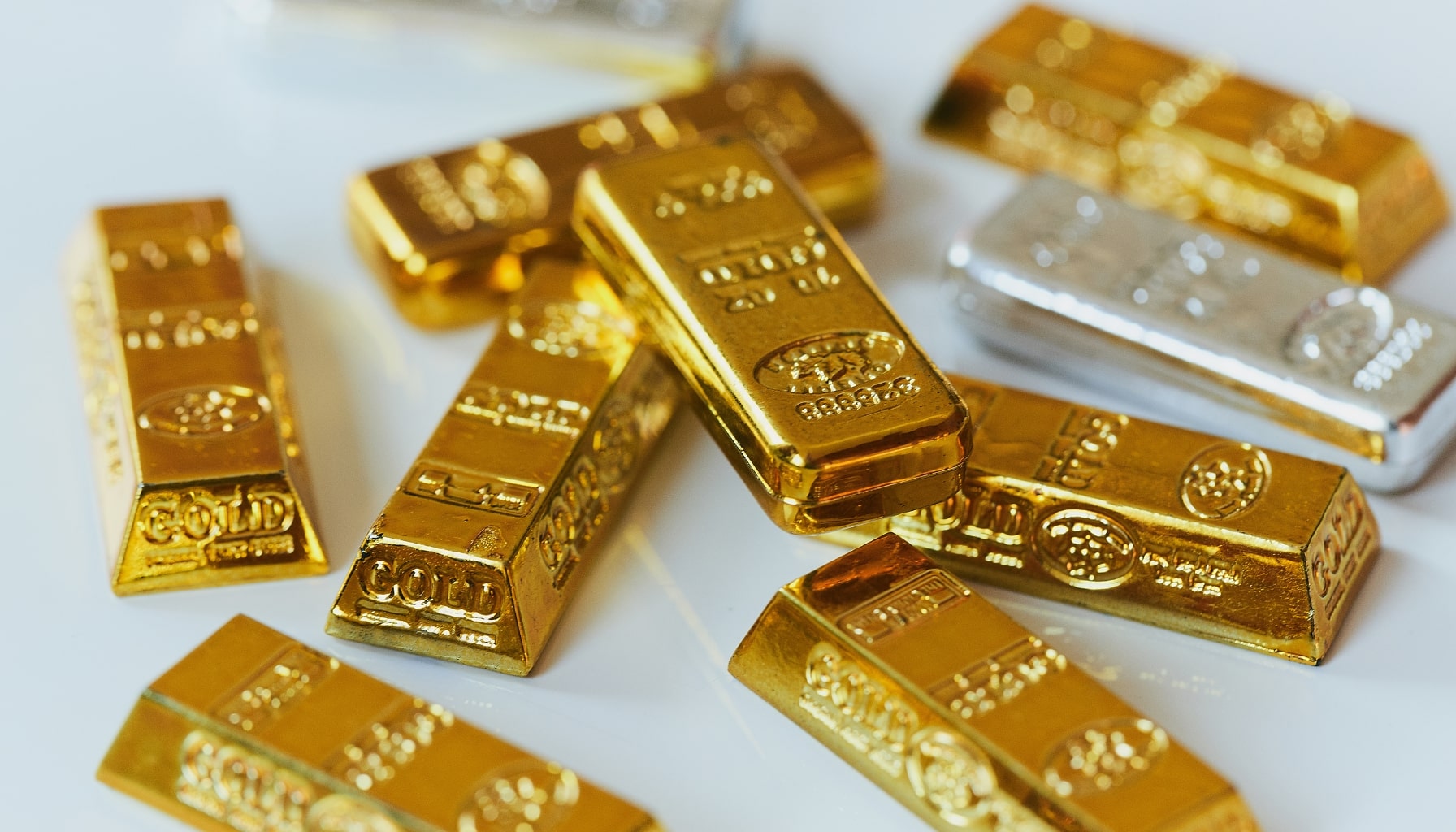
Gold has always held a revered place in human history, not just as a precious metal but also as a symbol of wealth, power, and divinity. The phrase “God’s money” is often used to describe gold due to its timeless value and its spiritual significance across cultures. Let's explore why gold is treated as divine, its historical importance, and what the future holds for this precious metal.
Table of Contents
1. Historical Significance of Gold
- Gold has been used as a form of currency and a symbol of divine power for thousands of years. Ancient civilizations like the Egyptians, Greeks, and Romans considered gold sacred and often associated it with their gods and rulers. The Egyptians, for example, believed that the gods lived in golden palaces, and gold was seen as the “flesh of the gods.” Pharaohs were buried with vast amounts of gold to ensure their journey into the afterlife, believing that their wealth would ensure their favor with the gods in the next world.
- In ancient Greece, gold was a symbol of the gods' favor, with the goddess Athena often depicted wearing gold. Roman emperors used gold not only to demonstrate their wealth but also to elevate their status as semi-divine figures. They believed gold was a link between the divine and the earthly realm.
- Gold’s role as money began around 600 BC in Lydia (modern-day Turkey), where the first gold coins were minted. These coins became a standard for trade and wealth storage, and over time, gold became synonymous with wealth and prosperity across the world. The ancient use of gold coins was not limited to trade; it was often used to pay tribute, raise armies, and establish economic dominance. The gold standard, which was introduced in the 19th century, further cemented gold's role as the cornerstone of global currency systems until the mid-20th century.
2. Gold’s Spiritual Significance
- In many cultures, gold is seen as a symbol of purity, immortality, and divine favor. In Hinduism, for instance, gold is considered sacred and is used in religious rituals and offerings. The wealth of temples, especially in India, is often stored in gold, reflecting its spiritual importance. Temples, such as the Golden Temple in Amritsar, are a testament to gold’s revered status. Gold is also used in Hindu weddings and festivals, symbolizing prosperity, fertility, and a blessing for a prosperous life.
- In Christianity, gold is also linked to the divine, as seen in the use of gold in religious artifacts and the fact that the “Streets of Heaven” in the Bible are described as paved with gold. The New Testament references gold in the form of offerings, including the gifts of gold, frankincense, and myrrh brought to the infant Jesus by the three wise men. This association of gold with purity and divinity reflects its timeless significance as something that transcends the earthly realm and connects believers to a higher power.
- Gold’s symbolic power isn’t limited to the West or the East; it has also been an important cultural symbol in African traditions, where gold represented the sun and was associated with the spiritual world. For example, in ancient Ghana, gold was not just wealth; it was considered a divine gift. The use of gold in African masks, jewelry, and ceremonial objects underscores its spiritual connection.
- This reverence for gold stems from its permanence and rarity. Unlike paper currency, which can be printed and loses value over time, gold retains its worth. Its enduring quality mirrors the eternal nature of the divine. The metal doesn’t tarnish, and its lustrous shine remains as vibrant as ever. Gold is a symbol of immortality — it never truly ages, just as divinity is often thought of as eternal.
3. Gold’s Role in Modern Economics
- Today, gold is seen not only as a store of value but also as a hedge against inflation and economic instability. Central banks across the world hold vast reserves of gold to back their national currencies, ensuring financial stability. During times of economic crises, gold’s value tends to rise, while the value of paper currency can fluctuate and even crash.
- Gold is often viewed as a “safe haven” asset, meaning that when other markets (such as stock or bond markets) are volatile, investors flock to gold as a safe investment. Its value remains largely unaffected by political instability, wars, or social upheavals. In fact, during economic downturns, gold tends to perform well because it is perceived as a stable and reliable asset in times of uncertainty.
- The demand for gold has grown over the years, not only from central banks but also from individual investors who are looking for an alternative to traditional financial markets. It has become a major component of investment portfolios as a risk diversification strategy. The use of gold-backed securities and exchange-traded funds (ETFs) further highlights its relevance in modern finance.
- Gold’s crucial role in modern economics is also reflected in its use in industries such as technology, electronics, and medicine. The demand for gold in devices such as smartphones, computers, and medical equipment shows that it is more than just a store of wealth — it’s an integral part of global innovation. The demand for gold is therefore tied not only to its monetary value but also to its physical properties, including its conductivity, resistance to corrosion, and malleability.
4. Future Predictions for Gold
- As we look to the future, gold is expected to remain an essential part of the global economy. The rise of digital currencies and central bank digital currencies (CBDCs) may change the landscape of finance, but the intrinsic value of gold will likely continue to make it a cornerstone of the global economy. Unlike cryptocurrencies, which are volatile and rely on trust in digital systems, gold’s physical properties and centuries-old status as a safe haven make it a reliable asset in uncertain times.
- Gold’s role as a hedge against inflation and a store of value is unlikely to diminish. If anything, its importance may increase as central banks around the world continue to print more currency in response to economic challenges. Additionally, geopolitical tensions and the increasing complexity of global trade may drive further demand for gold as a stable, universally accepted asset.
- The global demand for gold may increase due to its use in emerging technologies like electronics, solar energy, and even space exploration. Gold’s conductive properties make it an essential part of electronics, while its durability makes it useful in solar energy applications. There is also growing interest in gold in the space industry, with companies considering its potential for use in spacecraft and other off-planet technology.
- Additionally, as more people seek financial security in uncertain times, gold’s status as a safe haven will continue to attract both individual investors and governments alike. As global economies experience instability, gold’s timeless value and resilience will continue to make it a reliable investment.
5. Gold’s Role in Wealth Preservation
- Gold has long been a symbol of wealth preservation, and this tradition continues today. Unlike fiat currencies that are subject to inflation and devaluation, gold maintains its purchasing power over time. It is often passed down through generations as an inheritance, holding sentimental and financial value. For centuries, people have trusted gold to protect their wealth, and it continues to be a primary store of value for many individuals and institutions.
- Gold is also a key asset in the preservation of family wealth. Wealthy families and dynasties have often held significant portions of their fortune in gold as a long-term investment strategy. The fact that gold can be melted down and reused for various purposes also adds to its appeal as a form of wealth that can be passed down or reallocated without losing its value.
Gold’s association with the divine has its roots in ancient traditions and continues to be relevant today. Whether seen as a symbol of purity, wealth, or divine favor, gold has proven its worth across centuries. In the future, while the world may change, the value of gold will likely remain a steady and revered cornerstone of the global economy. As we continue to face challenges such as inflation, political uncertainty, and technological advances, gold’s enduring power will ensure its place as “God’s money” for generations to come.




